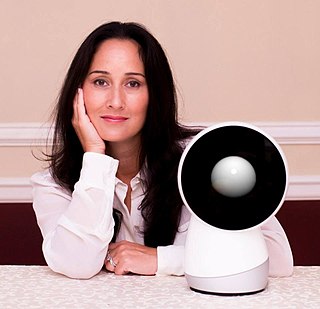A Quote by Big Narstie
I'm only a human being. I'm not a robot.
Quote Topics
Related Quotes
The Three Laws of Robotics: 1: A robot may not injure a human being or, through inaction, allow a human being to come to harm; 2: A robot must obey the orders given it by human beings except where such orders would conflict with the First Law; 3: A robot must protect its own existence as long as such protection does not conflict with the First or Second Law; The Zeroth Law: A robot may not harm humanity, or, by inaction, allow humanity to come to harm.
In the smart home of the future, there should be a robot designed to talk to you. With enough display technology, connectivity, and voice recognition, this human-interface robot or head-of-household robot will serve as a portal to the digital domain. It becomes your interface to your robot-enabled home.
Some people think that, inevitably, every robot that does any task is a bad thing for the human race, because it could be taking a job away. But that isn't necessarily true. You can also think of the robot as making a person more productive and enabling people to do things that are currently economically infeasible. But a person plus a robot or a fleet of robots could do things that would be really useful.
I believe in recognizing every human being as a human being--neither white, black, brown, or red; and when you are dealing with humanity as a family there's no question of integration or intermarriage. It's just one human being marrying another human being or one human being living around and with another human being.

































